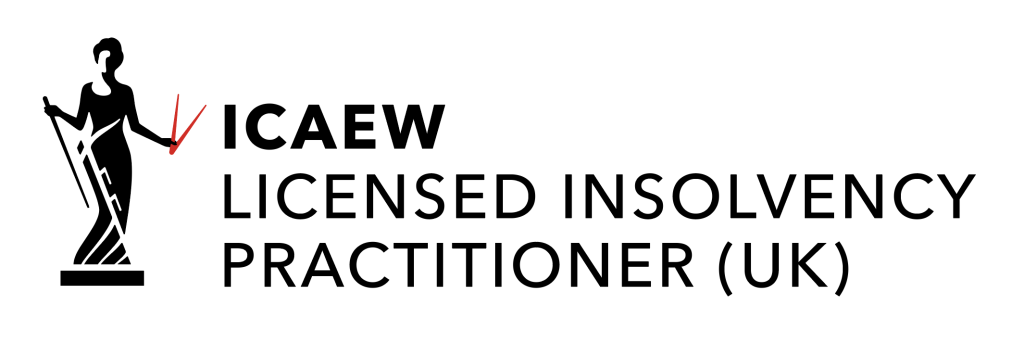Bailiffs and Enforcement Officers:
Anderson Brookes Insolvency Practitioners help directors close limited companies with debt quickly, legally and with expert guidance every step of the way.
Contact us today
A Business Owner’s Guide
Bailiffs, also known as enforcement officers, are legally authorised to collect debts. If you’re a company director or business owner, it’s important to understand how bailiff action works, what your rights are, and how to respond quickly to avoid disruption or asset loss.
Anderson Brookes helps directors protect essential tools, vehicles and premises while resolving the debt behind enforcement. Most cases can be paused or settled before any removal takes place.
When Bailiffs Get Involved in Business Debt
Most bailiff activity starts after a County Court Judgment (CCJ) has been issued against your company. In some cases, enforcement officers are used without a CCJ, especially for HMRC debts, unpaid business rates or council liabilities.
Common debts that trigger enforcement include:
Unpaid business rates
Corporation Tax, VAT, PAYE or National Insurance
Local authority fines or penalties
County Court or High Court judgments
Personal tax debt affecting directors
Self-Assessment arrears (sole traders)
| Type of Bailiff | Applies to Businesses? | What They Can Enforce |
|---|---|---|
| County Court Bailiffs | Yes | CCJs under £5,000 |
| High Court Enforcement Officers | Yes | Judgments over £600 if transferred, or over £5,000 directly |
| Certificated Enforcement Agents | Yes | Public body debts such as council tax or business rates |
What Happens When Enforcement Begins
You will first receive a Notice of Enforcement giving you seven clear days to settle the debt or make a repayment plan. If no action is taken, a bailiff may attend your premises.
On their first visit, they will:
Attempt peaceful entry
Record details of valuable goods
Propose a Controlled Goods Agreement (CGA), which sets out repayment terms
If these terms are not met, the bailiff can return and remove the listed items for sale.
Can Bailiffs Visit My Business?
Yes. Enforcement officers can visit commercial premises, business addresses registered at your home, and locations where they believe business assets are stored. They may also attend shared units or properties with limited access.
Visits are allowed between 6am and 9pm, any day of the week. If your business only trades outside these hours, they can visit during your standard operating times.
They do not need to call ahead or make an appointment after the Notice of Enforcement period has expired.
What Can They Take from My Business?
Bailiffs will look for high-value items that can be easily sold to recover the debt. This often includes:
Vehicles such as vans, cars or plant
Tools, machinery and stock
IT equipment and electronics
Office furniture or display items
Losing any of these can bring business to a stop, which is why acting early is so important.
What Business Assets Are Protected?
Some tools and equipment are legally protected, especially if they are vital for your trade and fall under certain value limits.
| Asset | Protected? | Details |
|---|---|---|
| Tools or equipment | Yes | Protected up to £1,350 if essential for your work |
| Vehicles on finance | Often | Must prove it is on lease or hire purchase |
| Business vans | Sometimes | Protected under work exemption rules if under £1,350 and essential |
| Goods not owned by you | Yes | Need proof of ownership or third-party claims |
If there is any doubt over ownership or exemption, bailiffs may still try to seize the item. You must act quickly to challenge the removal.
Why Directors Choose Anderson Brookes
With more than 25 years’ experience and thousands of directors helped, we’re trusted by business owners across the UK. You can speak directly with an expert insolvency practitioner and we’ll help you understand your options clearly and quickly. We specialise in working with small and medium businesses and we understand your perspective and priorities.
Ready to
Move On?
If you’re ready to close your company, stop creditor pressure, or just want to understand your next steps, we’re here to talk.
Call us now on 0800 1804 933 or request a call back - we’re here to help.
Are Company Vehicles at Risk?
Yes. Vehicles are a common target because they are easy to identify and remove. If your van or car is registered to the business and parked on a public road, it can be taken.
Exemptions may apply if:
The vehicle is leased or under hire purchase
It is essential for your trade and worth less than £1,350
It is parked on private property and not accessible without a court order
Do not wait for the vehicle to be clamped or towed. Contact us the moment a Notice of Enforcement arrives.

What You Can Do to Stop Enforcement
Anderson Brookes can usually stop bailiff action if you contact us before the first visit or before goods are removed. In some cases, we can arrange a short-term pause via the court to allow time to put a repayment plan or insolvency process in place.
We support businesses facing:
HMRC tax enforcement
Supplier and creditor disputes
Unpaid CCJs
Bounce Back Loan recovery
Lease and finance arrears
Local authority enforcement
We explain all your options clearly, with no pressure. Whether it’s closing the company, negotiating a repayment plan or applying for formal protection, we will guide you through it all.
Testimonials
Our clients praise our professionalism, reliability, and the exceptional support we provide during challenging times, helping thousands of company directors through insolvency, liquidation, and business debt solutions.
Sectors We Support
We support company directors in every sector, from construction firms and logistics companies to pubs, cafés, restaurants, hotels, retailers and manufacturers. Our advice is always clear, confidential and shaped by real experience in your industry. Whether you’re dealing with unpaid tax, supplier pressure or falling income, our team understands the challenges and will guide you through the best next steps.
Speak to a Licensed Insolvency Practitioner Today
If you are worried about bailiffs or enforcement officers, do not wait for things to escalate. We offer regulated advice, rapid intervention, and clear options tailored to your business. You can call, email or complete our form – no in-person meeting required.
📞 Free Helpline: 0800 1804 933
📩 Email: advice@andersonbrookes.co.uk


